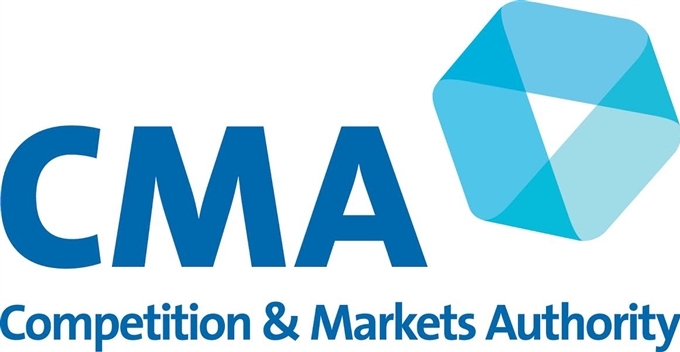The Competition and Markets Authority (CMA) has announced they are to begin investigating firms who exist to write or commission positive reviews about businesses to boost ratings on review sites.
The CMA is concerned about consumers being misled by fake reviews written by the business itself, or by third parties who specialise in writing fake reviews. Many consumers will base their purchases on reviews of particular websites or products online; however these fake reviews may distort the image of the business in question to the public.

Why Online Reviews Matter
In a recent report, it’s been estimated “that more than half of UK adults (54%) use online reviews, and that 6% use blogs or vlogs before making purchases.“
The consumer group Which? have reported that around £23 billion of purchases a year were influenced by the reviews found online; which shows exactly why companies are so desperate to gain positive reviews, and dispel any negative ones.
Why the CMA are investigating Fake Reviews
The scale of how deep this issue goes is unknown, simply because it’s so difficult to know whether a business is posting fake reviews of themselves, or if they have hired someone else to post positive reviews on their behalf.
After an initial study on the issue of fake reviews, the CMA had found evidence that firms were posting fake reviews in numbers significant enough for them to warrant a more formal investigation, and will now decide on whether to clamp down on this practice; and how to handle the different ways in which businesses mislead consumers with these reviews. In additional, the CMA also found that many people were featuring or reviewing businesses or products on their blog, social media channels, or other editorial content; and it is unclear to the audience that they are paid-for content, and are essentially advertisements or “fake reviews”.
In addition, these firms also post negative reviews about any rivals, which can have a huge impact in particular industries, such as travel and food industries. Alongside this, sites also allow businesses to remedy negative reviews, that are left unpublished, which does not let review site users to view the whole picture.
Why do Fake Reviews still exist?
The review sites themselves need to make money somehow, whether through subscriptions, clicks, or by selling reputation management services to the businesses that rely on the online reviews.
This means review sites cannot always be relied on to be impartial, and compromise the entire concept of what an online review should provide. Review websites can benefit from hiding any negative reviews, due to any arrangements they may have with the companies in question.
Businesses can also choose positive reviews, and suppress negative reviews without any form of declaration, and the watchdog is now saying this may breach the Consumer Protection from Unfair Regulations Act, which could mean businesses could be open to fines and legal action.
Why are endorsements wrong?
As far as endorsing products or brands through editorial content, it’s a blurred line that needs to be addressed. Companies or individuals that have blogs, social media profiles, or other forms of content, can be paid to promote another product or brand, and expose it to a wider audience. This is essentially a paid-for advert, or fake review if it is shown in such a light, yet consumers are unaware of this fact.
Companies who have cultivated a following online can often generate interest in a product or brand by posting about them. For instance, Wayne Rooney got in trouble for promoting a brand to his Twitter followers, without making it clear he was paid to do so. Social media has the potential to reach millions of people who hang on the every word of particular accounts, and so sponsored posts have become more prevalent, without it being clear it’s sponsored. However, on the other hand, social media provides a great platform for consumers to complain or praise business in a more public manner; which businesses simply cannot control.
However, on the other hand, social media provides a great platform for consumers to complain or praise business in a more public manner; which businesses simply cannot control.
Illegal, or just immoral?
The Consumer Protection from Unfair Trading Regulations 2008 prohibits businesses from falsely representing themselves as a consumer, meaning businesses cannot post positive reviews about themselves, and mislead customers into thinking they are a member of the public. It also prohibits businesses from promoting particular products within editorial content, without making it clear to the public that it is sponsored.
For instance, Trustpilot allows for businesses to display certain reviews on their website, which could now be considered breaching certain laws or regulations. However, whether this is set to change in the near future is unclear, and no doubt this probe will come to a conclusion when this is reviewed. The CMA have stated that hiding negative reviews is against the law, whilst some review sites allow businesses to selectively order reviews so that positive ones come first. It seems there’s a grey area of what is illegal, and what is simply misleading; and that is what needs to be addressed.
Nisha Arora, the CMA Senior Director, has said the following:
We have found that consumers who use online reviews and endorsements find them valuable, but we have also heard about some practices that may be unlawful.
We are committed to ensuring that consumers’ trust in these important information tools is maintained, and will take enforcement action where necessary to tackle unlawful practices. We have opened an investigation into businesses that may be paying for endorsements in blogs and other online articles where the payment may not have been made clear to readers. We have also published information for businesses to tell them what they need to do to help them stay within the law.
The CMA has not highlighted the exact websites at the heart of this debate, but cases have arisen in recent times taking place on review sites including TripAdvisor, Trustpilot, and even Amazon itself.
Any businesses doing these acts could also be breaking UK Advertising Codes, which are currently dealt with by the Advertising Standards Authority (ASA).
TripAdvisor have stated:
We welcome the CMA’s report and its recommendations which are in line with our own policies to protect the integrity of our online reviews – which have been in place at TripAdvisor for years
How Fake Reviews can be stopped
Some websites do have systems in place which can detect and verify reviews, hopefully reducing the number of fake reviews; but not all websites have this in place, which may need to be addressed.
Companies such as eBay may need to crackdown on sellers who reward or entice users to give positive reviews. For instance, time and time again eBay shoppers are told to “not post negative reviews” of a company if their product is faulty or not as described; despite the fact this is the exact grounds reviews are for. Instead, companies will grant full refunds in fear or negative feedback. Perhaps not all bad news, but it still goes against the entire concept of how reviews should work. Google reviews are renowned for being relatively trustworthy – but it can still be gamed in similar ways to other sites.
One high-profile case is Lowcostholidays.com offered £25 off future holidays to those that posted positive reviews to TripAdvisor, however this has since stopped after consumer backlash.
Alongside online reviews, the CMA is also researching the trade behind endorsements being featured on websites and blogs which are sponsored by the business behind them. Often, the fact they are paid for by the promoted business is unclear, and this is seen as dubious and misleading by the CMA.
The report found that:
We have seen examples of suppliers paying bloggers sums of between £100 and £500 in return for a blog post about a product or service, and up to £50 for a pair of tweets. We have also heard of payment in the form of gifts, vouchers, tickets to events and, or, hospitality.
The CMA has not stated when they will publish their investigation, or what they plan to do, so it is likely to be 2016 before we hear any more on the subject. But it is at least a wake-up call for any businesses who may be breaching certain laws, regulations, or even morals; even if they hadn’t realised previously.
In the meantime, the CMA have recommended that businesses double check they are complying with any legal obligations, and should obviously not be writing fake reviews about their own business, or writing negative ones for other businesses. Advertisements and promotions should also be identifiable to the public as paid-for content.
As for review sites, they need to be open about how reviews are collected and checked, and that all reviews should be published; whether positive or negative. Publication of reviews should not be delayed intentionally, any partnerships with business should be detailed, and that procedures should be put in place to detect and remove fake reviews.
If you need guidance or have any queries about these new findings, then get in touch with the team at Xanthos who will be happy to discuss any issues you may have.
The full report on the CMA’s call for information can be read below:
Online Reviews and Endorsements Report on the CMA’s Call for Information












